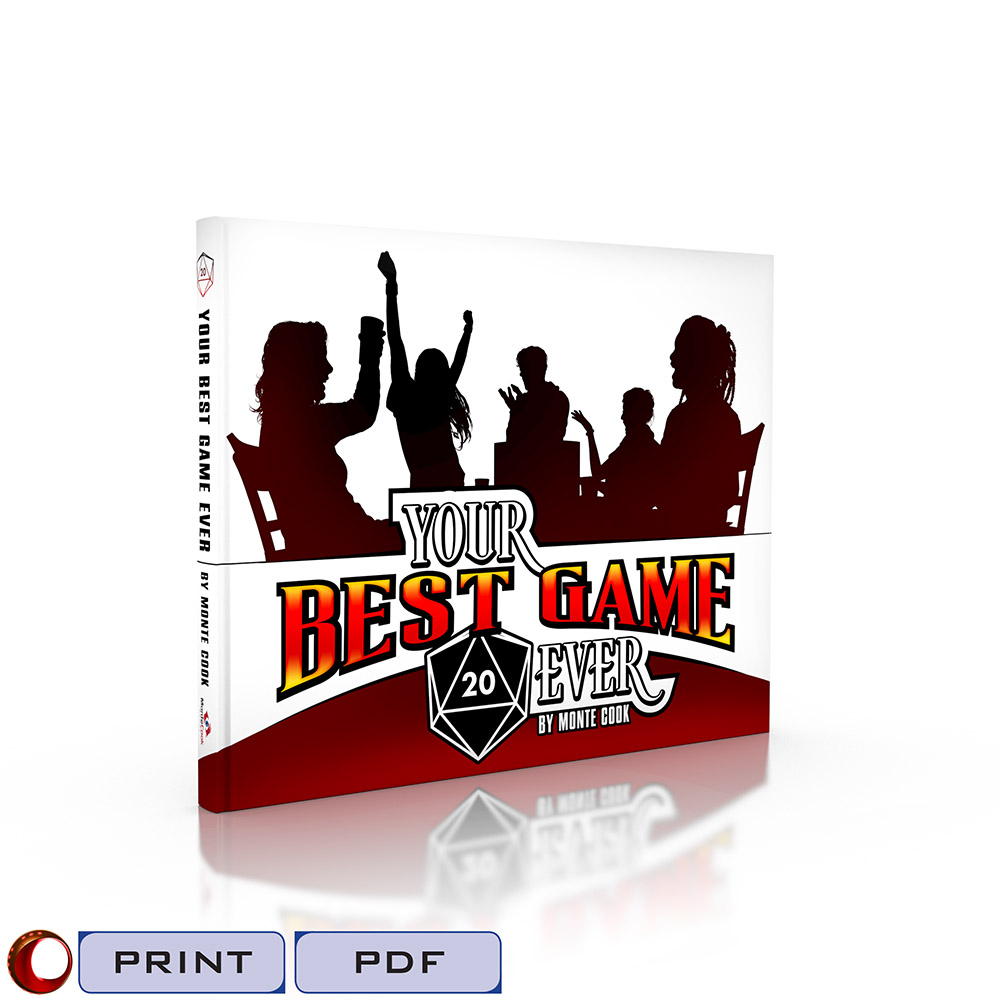Yes, given the goal of play as you identify it. But it's incomplete. It doesn't actually describe processes of play. The first list is some tips to help decide what to say as GM, but doesn't say anything about when to say stuff, or how this relates to the shared fiction or what anyone else has said. The second bundle of lists are checklists for prep. Apocalypse World has those, but it also talks about
how to actually play the game when sitting around the table with your friends.
It was directionless. Nothing happened.
My daughter is a teenager. She's seen RPG play going on (ie mine) since she was a baby. She's seen people play Rolemaster, 4e D&D, Classic Traveller, Prince Valiant, Burning Wheel, MHRP/Cortex+ Heroic, and a few other one-shots on top of that. She knows that RPGing involves talking about what is going on in the fiction, and getting excited about dice rolls.
She's also done a little bit of playing as opposed to observing - eg
a solo Classic Traveller session last year. She was really looking forward to playing in her own game with her friends. And as I said, she's been disappointed.
The game has all the typical pathologies of schoolkid play - a goblin fighter who gets drunk; silly PvP about nothing that matters; a tendency to think that a 1 on a check must mean some sort of comical disaster; and a general inability to actually get on with things. But what has struck me is how little structure D&D 5e has to avoid this sort of nonsense. For instance:
* There is no structure for bringing the PCs together into a party (and I think in my daughter's game this took two sessions = 3+ hours to achieve);
* There is no structure for telling the players what they should be doing, leading to "hunting for the plot";
* There is no structure to tell that GM what to do if the PCs say "we spend the night in the woods" and then don't declare watches (as happened in this game) - eg there's no articulated framework for saying "time passes" nor one for saying "make a sleeping-in-peril check".
I hope that conveys the gist of it.
My daughter and I had a spare 40 or so minutes last Friday and I pulled out Moldvay Basic. She rolled up 2 PCs. I helped her choose classes (a Halfling and a Fighter) and equipment. Then we did about three rooms of The Haunted Keep (the example dungeon at the back of the book): she drew a map, made checks to open doors, put out her lantern to save oil while resting; I rolled wandering monster checks and got some fire beetles but the reaction roll showed they were friendly (which I took to mean inquisitive and harmless).
Now from my point of view the main take away was a reminder of my lack of interest in classic D&D play. And the only real "action" was one PC falling down a pit - the Halfling, and I'd forgotten to put rope on her gear lists (crack Sam Gamgee jokes here - we did). I asked my daughter how she gets out. It took a while. I had thought the Fighter's scabbarded two-handed sword would be the solution, but she didn't think of that; instead she asked how big a large sack is - and I allowed it to be long enough for a Halfling to grab hold of and be pulled up with (maybe I called for DEX checks, with a failed one adding a turn to the clock). From my daughter's point of view working out how to get through the pool of water in one of the rooms probably also counted as action - the Fighter waded through carrying the Halfling on his shoulders (as per the room description, the water itself is harmless).
But my other take away was that my daughter noticed the effects of structure, in the sense that she knew what to do (make her way through the dungeon, looking for treasure), things were happening (opening doors, finding pits and pools of water, encountering fire beetles on the other side of a door) and she had tangible indicators of progress (checking out rooms, making her map, having the inquisitive fire beetles leave her PCs alone as they walked among them). It wasn't exactly
exciting but it wasn't directionless and silly either.
And all that structure is provided by the published rulebook, some of it express (the turn structure, the rules for doors, the principles around mapping, etc) and some of it implicit in what the GM and players are told to do - the GM is told to draw up a dungeon (or pick one off the shelf, as I did) and the players are told (i) that their adventure will begin with their PCs at the dungeon entrance, and (ii) that their goal is to explore the dungeon for treasure. (The sample dungeon also has a backstory about finding and rescuing prisoners, but that's a veneer whose thinness no one tries to conceal!)
I'm not arguing that 5e D&D should be a dungeon crawl game. I'm arguing that, however exactly it is meant to be played, it should be possible to state processes and principles that - if followed - will bring it about that the participants will have that sort of experience. Which I think can probably be more rewarding than the dragonborn bard putting the drunk goblin fighter into a sack.




